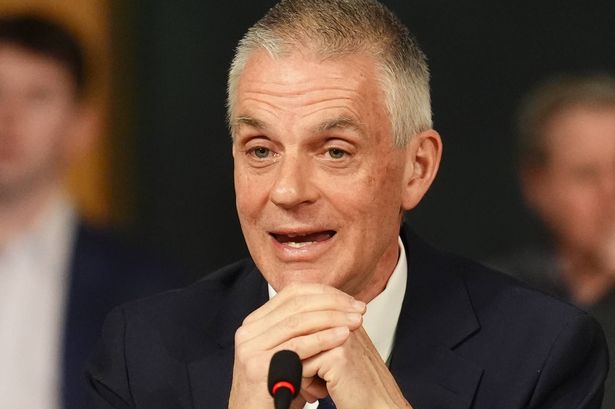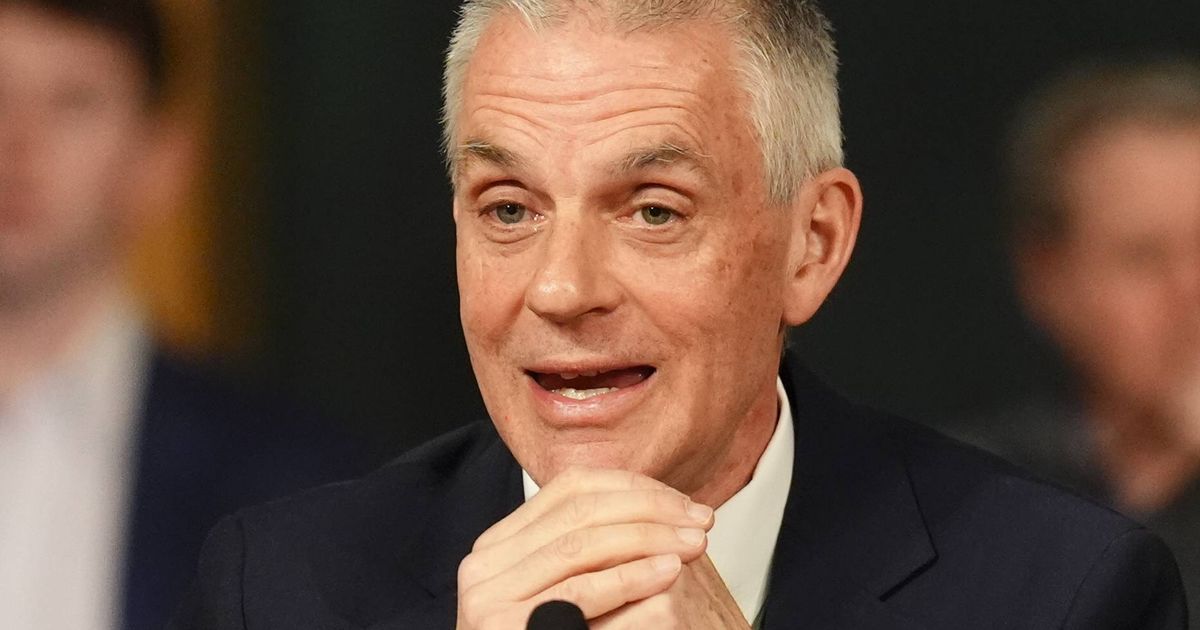The European Broadcasting Union is consulting its members on how to “manage participation and geopolitical tensions” around the Eurovision Song ContestSteve Graves Executive Editor Digital and Casey Cooper-Fiske and Lauren Del Fabbro PA
09:46, 18 Sep 2025
 Tim Davie’s comments come after a number of nations have threatened a boycott (Andrew Milligan/PA)(Image: PA Archive/PA Images)
Tim Davie’s comments come after a number of nations have threatened a boycott (Andrew Milligan/PA)(Image: PA Archive/PA Images)
BBC director-general Tim Davie has revealed the corporation will “make a decision” on whether it will participate in next year’s Eurovision Song Contest. His comments follow threats from broadcasters in Spain, the Netherlands, Ireland and Slovenia to boycott the Vienna-based competition if Israel is permitted to compete.
The European Broadcasting Union (EBU), which organises Eurovision, announced last week it was consulting members on how to “manage participation and geopolitical tensions” surrounding the song contest. Broadcasters have been given until mid-December to confirm their participation.
When pressed about the BBC‘s involvement during The Media Show on BBC Radio 4, Mr Davie responded: “Well, what we’re doing very specifically on Eurovision is the European Broadcasting Union hosts Eurovision, they are doing a review on what is the right position in terms of entries that come from broadcasters – what assurances do they need and who can compete, and we’re going to let them do their work, and then make a decision.”
Addressing the Commons Public Accounts Committee on Monday, Mr Davie insisted Eurovision had “never been about politics” whilst acknowledging “we’re very aware of the concerns”. Spanish public broadcaster RTVE reached the decision for a potential boycott during a board meeting in Madrid, whilst Slovenia’s RTVSLO, Ireland’s RTE and Dutch public broadcaster Avrotros have confirmed they will not participate in next year’s competition if Israel remains amongst the contestants.
The leaders of the Scottish Greens, Green Party Northern Ireland, Wales Green Party and Green Party of England and Wales have already urged the BBC to pull Eurovision coverage should Israel take part.
The BBC encountered similar pressure from musician and songwriter Phil Coulter, who co-wrote the UK’s triumphant 1967 entry Puppet On A String and argued there was a “double standard” given Russia and Belarus had previously been kicked out of the contest.
The boycott demands stem from protests against Israel’s military campaign in Gaza.
The UK forms part of Eurovision’s Big Five, which guarantees automatic qualification to the final thanks to substantial financial contributions to the EBU.
This year’s Eurovision Song Contest witnessed Austria’s JJ claim victory with the heartfelt track Wasted Love, whilst Israeli performer Yuval Raphael finished as runner-up.
Israel first appeared at Eurovision in 1973 following its membership of the EBU.
Russia received a ban from Eurovision following its full-scale invasion of Ukraine in 2022, yet Israel has remained in the competition for the past two years despite ongoing disputes over its involvement.
Eurovision’s grand final is scheduled to take place in Vienna this May. Speaking at the Royal Television Society’s (RTS) Cambridge Convention on Wednesday, Mr Davie urged industry leaders to adopt a bit of “swagger” and “act with urgency” to ensure public service broadcasting (PSB) remains relevant.
This comes ahead of the Government’s review of the BBC’s charter, which will examine its funding model, following a commitment to increase the licence fee in line with inflation each year until 2027.
He drew upon insights from the corporation’s recent public engagement survey titled Our BBC, Our Future, emphasising that it was not about “self-survival” but supporting the wider industry as a whole.
Mr Davie stated: “A major priority for me and for the sector is securing the future of a fully funded universal public service BBC.
“Let me be clear. This (the survey) is not about the BBC focusing on self-interest or self-survival.
“It’s about a growth plan that makes sure public service broadcast is totally relevant in the new world.
“We are here to serve (the public) and also serve the industry, increasing value for the UK as a whole.
“The BBC is not perfect, you may have noticed, but it acts as precious venture capital.
“We need to invest in it.
“But more than the BBC, this is about all of us, collectively, putting the right measures in place to nurture a very precious UK growth story, to be confident, to act with urgency and dare I say, adopt a little bit of swagger.
“Setting our sights on good growth and being crystal clear about what we need to do to make it happen, that’s what these two days are all about.”
This follows a turbulent period for the broadcaster, which has endured a series of controversies over the past year, including misconduct allegations against MasterChef host Gregg Wallace and backlash over its live coverage of rap duo Bob Vylan at Glastonbury.
Despite the criticism levelled at the corporation, Mr Davie insisted he has “never felt more supported in terms of the need for the BBC”.
The charter outlines “the BBC’s object, mission and public purposes” alongside its funding arrangements, with the current charter having commenced in January 2017 and renewal discussions already underway before it expires in December 2027.
